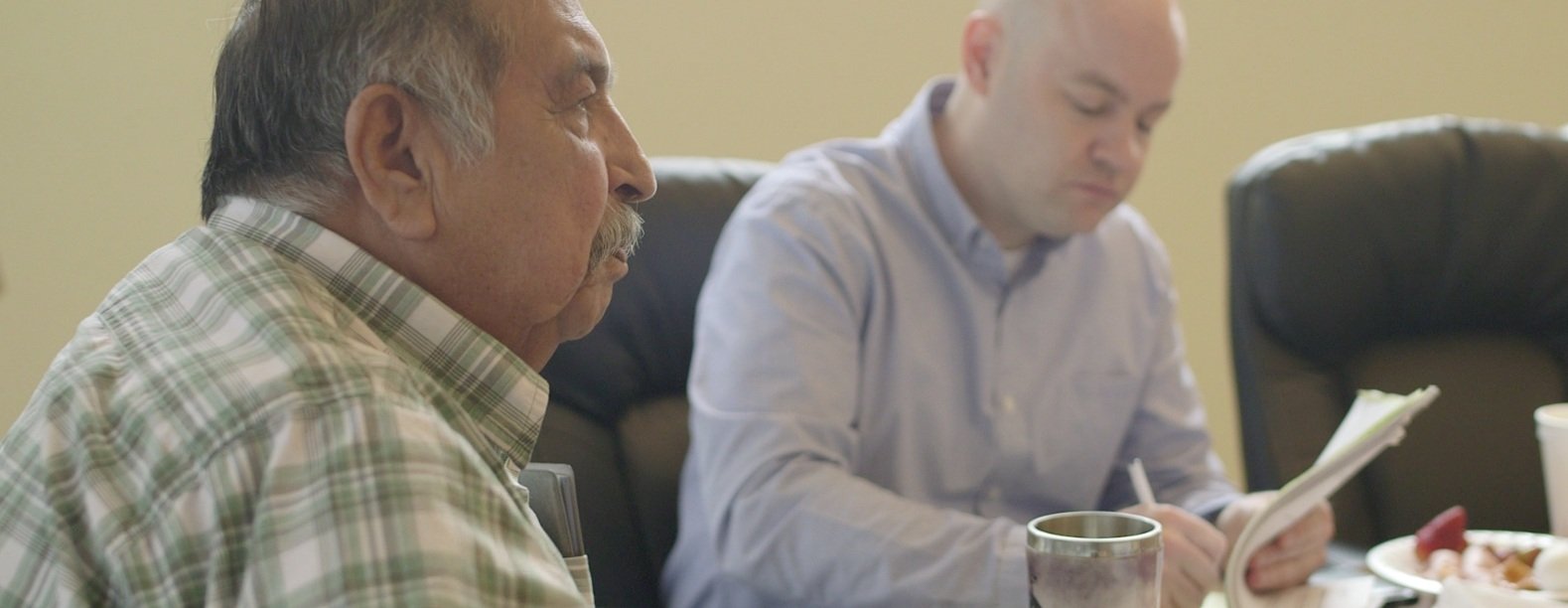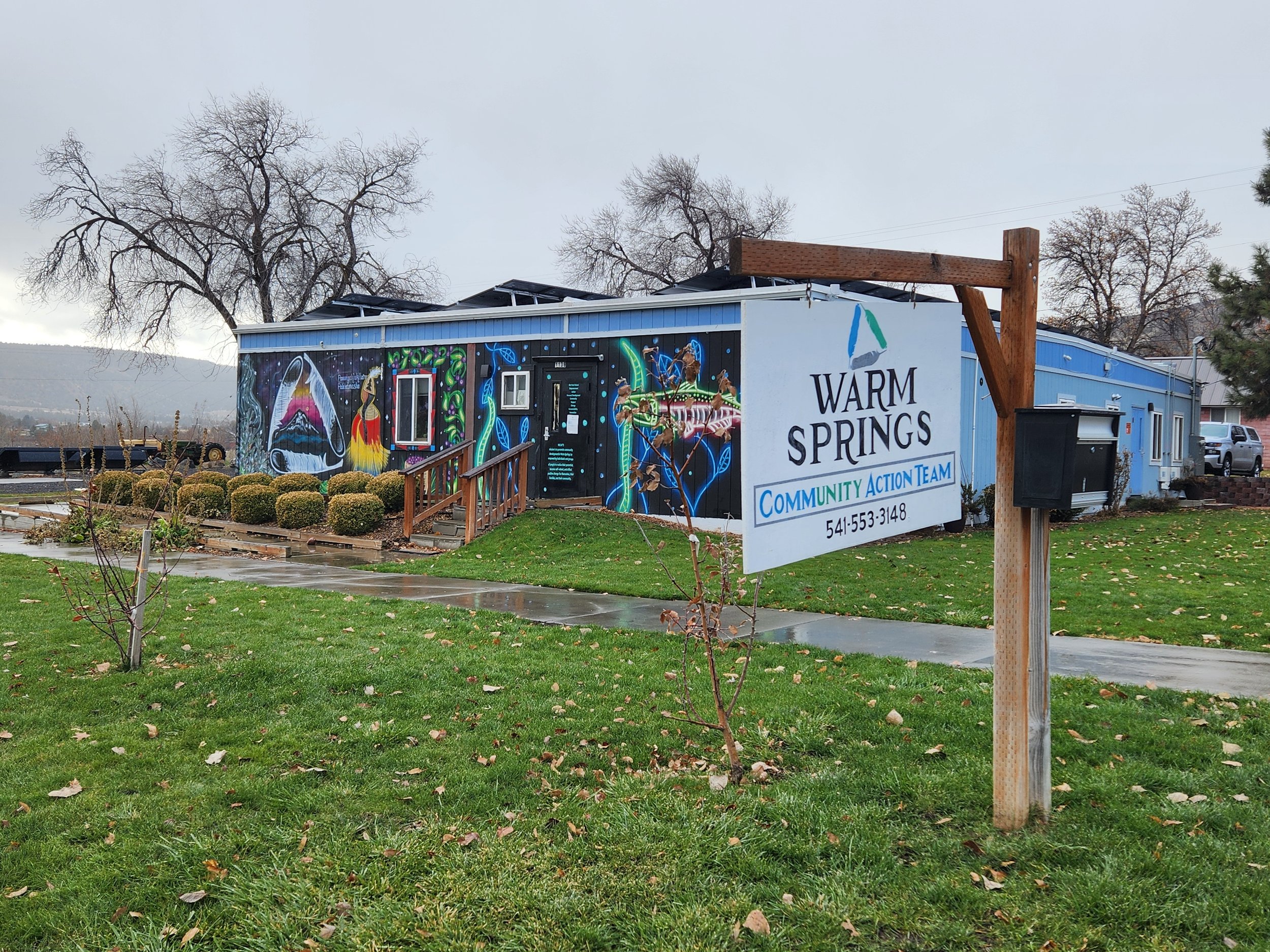
Highlights from recent projects help tell the story of how and where we work.
Visit our Gallery to see samples of specific deliverables. Use the search bar below to find projects in specific regions, covering certain topics, or with a particular tribe.
All Projects

Sicangu Wicoti Awayankapi (SWA) Homeowner Assistance Fund
Rosebud, South Dakota
SWA Corporation received an allocation of nearly $5 million through the US Department of Treasury’s Homeowner Assistance Fund Program. This pandemic-relief program supports homeowners in avoiding foreclosure and improving housing stability following the impacts of the COVID-19 pandemic.

Fond du Lac Housing & Community Needs Assessment
The Fond du Lac Housing and Community Needs Assessment is being directed by the Fond du Lac Planning Division to collect actionable data that the Band can use to plan for future housing and community development projects.

Ending Rental Arrears to Stop Evictions (ERASE) Surveys
UNAHA received the Ending Rental Arrears to Stop Evictions (ERASE) grant from the National Low Income Housing Coalition (NLIHC) to assist member Tribes and TDHEs in designing and implementing Emergency Rental Assistance (ERA) programs.

White Earth Housing Needs Assessment
The White Earth Housing Needs Assessment is being conducted to support the White Earth Nation in its efforts to implement a Housing Needs Study. For this project, the White Earth Housing Authority will conduct a survey of residents throughout the study area as well as focus groups, interviews and community meetings to help determine the availability of and need for housing on the White Earth Reservation.

South Dakota Native Homeownership Coalition Appraisal Market Study
The Appraisal Market Study was commissioned by the South Dakota Native Homeownership Coalition (SDNHC) to describe the market for home appraisals on the nine Indian reservations in South Dakota and enable appraisers to evaluate the potential business opportunities available to them on reservation lands. Big Water Consulting used existing, available data from federal, state, and Tribal sources and interviewed and surveyed appraisers, lenders, and Tribally Designated Housing Entities (TDHES) to help determine the composition, size, value, and growth for valuation services on reservations within South Dakota.

Red Cliff Housing Needs Assessment
Bayfield, Wisconsin
The Red Cliff Reservation is located on the shores of Lake Superior in north Wisconsin near the town of Bayfied, Wisconsin. This area experiences an extreme winter climate and a highly seasonal economy focused primarily on tourism. After completing a successful Tribal Census and Community Needs Assessment in 2018 (97% household survey response rate), the Red Cliff Chippewa Housing Authority launched the Red Cliff Housing Needs Assessment in February 2020 in order to gather data to support and guide planned housing development and which could be used to challenge and replace the Census Bureau data used to determine the Tribe’s housing funding allocation.

Lac Courte Oreilles Community Assessment
Hayward, Wisconsin
The Lac Courte Oreilles Reservation is a largely wooded area in north-central Wisconsin that is punctuated by lakes, streams and the Chippewa flowage. Big Water Consulting trained the local Survey Manager and field staff to canvass the reservation and update the Tribe’s housing unit map prior to conducting a household survey involving a random sample of 945 housing units on the reservation. A paper survey form was also mailed to off-reservation members living in Sawyer County. An online survey form was also made available to the on-reservation and off-reservation survey respondents via a survey code provided to households included in the sample.

United Native American Housing Association (UNAHA) Meth Testing and Remediation Survey
Pablo, Montana
Big Water Consulting developed and facilitated the Meth Testing and Remediation Survey of United Native American Housing Association (UNAHA) members. This survey was designed to assess the impacts of meth use and manufacturing in tribal housing authority units on the administration of tribal housing programs, including the cost of meth testing and remediation and the exacerbation of existing housing shortages by the temporary removal of meth-contaminated housing units from service. The data collected via this survey will allow UNAHA to inform elected officials and agency staff at the state and federal levels about the extent of the meth problem and provide concrete numbers to funding sources that may be able fund efforts to address this problem.

South Dakota Native Homeownership Coalition (SDNHC) Veterans Housing Needs and Homeownership Study
Eagle Butte, Pine Ridge and Sisseton, South Dakota
With support from SDNHC, Enterprise Community Partners and Lakota Funds, Big Water worked with the Cheyenne River Housing Authority, Oglala Sioux (Lakota) Housing, and Sisseton Wahpeton Housing Authority to design and implement the Veterans Housing Needs and Homeownership Study. Data collected through an intercept survey and focus groups conducted on each of the three reservations will enable housing authorities, Tribal Veteran Service Officers and others to identify the housing and service issues most important to veterans and then develop and fund tailored programs that help address these concerns.

Pokagon Tribal Census
Dowagiac, Michigan
The Pokagon Band of Potawatomi has no reservation and its members are distributed throughout the United States and the world. The Band has made great efforts to spur economic development within its service area in Michigan and Indiana and the surrounding region. The Tribal Census, conducted every five years to support a constitutionally mandated comprehensive planning process, was implemented through a mail-out survey delivered to all households with an enrolled Pokagon citizen, regardless of whether they lived inside or outside the Band’s service area. The resulting dataset is now being used to inform decisions related to land acquisition, economic development, education spending, program administration, and the development of new services.

Red Cliff Tribal Census and Community Needs Assessment
Bayfield, Wisconsin
The Red Cliff Indian Reservation is a remote community located on the shores of Lake Superior on the northern tip of the Bayfield peninsula in Wisconsin. It has a recreation and resource-based economy and a large number of seasonally vacant units and second homes. The project, which included a reservation-wide household survey, enabled the Band to correct distortions in existing data resulting from the income disparities and demographic differences between full-time residents (who are generally Native) and seasonal residents (who are generally not). In addition, the data will be used to develop a Comprehensive Plan and identify specific options to address resident needs and create opportunities for individual and collective development.

South Dakota Native Homeownership Coalition (SDNHC) Housing Needs Studies
Eagle Butte and Mission, South Dakota
Big Water worked with the Cheyenne River Housing Authority and the Rosebud Economic Development Corporation (REDCO) to conduct two homeownership assessment studies commissioned by Lakota Funds and SDNHC. Analysis of existing data, as well as data collected through an intercept survey and key informant interviews, provided insight into perceived obstacles to homeownership, anticipated changes in housing supply and demand, levels of interest in and qualifications for homeownership, as well as other issues specific to each community. Results are being used to facilitate the development of homeownership and CDFI programs; two additional Housing Needs Studies were launched in 2018.

Dakota Housing Needs Assessment Pilot Project
Pine Ridge, Eagle Butte, Rosebud, Lower Brule (South Dakota) and Belcourt (North Dakota)
In cooperation with the Oglala Sioux (Lakota) Housing Authority, Sicangu Wicoti Awanyakapi (SWA) Corporation (Rosebud), Cheyenne River Housing Authority, Turtle Mountain Housing Authority, Lower Brule Housing Authority, Big Water designed and coordinated housing unit mapping and household surveys on five reservations. The purpose of the project was to collect population and housing needs data for each tribe that could be used to challenge and replace U.S. Census data, as authorized by the Native American Housing Assistance and Self-Determination Act (NAHASDA). The project also developed a model for collaborative, large-scale tribal data collection.
















